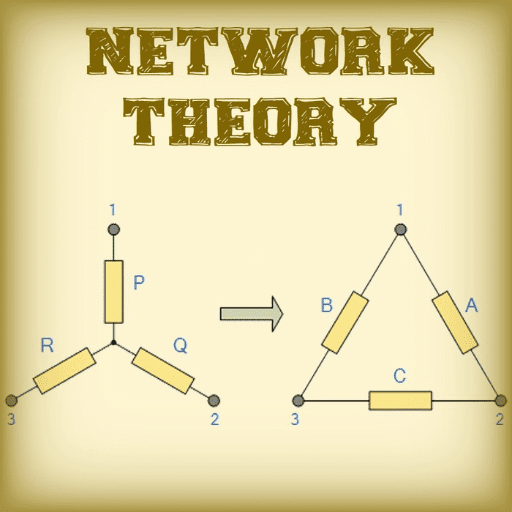Worksheet - The Sentence | English An Alien Hand Class 7 PDF Download
1. We use words when we Speak or write. We usually use these words in group in correct order.
- The cat sat on the mat.
- A group of words which makes complete sense, is called a Sentence.
- Thus a sentence is a group of words that are kept in a particular order to make a complete sense.
2. Sentences are of four kinds:
(a) Declarative or Assertive sentence
- Those which make statements or assertions.
- Example: Humpty Dumpty sat on a wall.
(b) Interrogative sentence
- Those which ask questions.
- Example: What is your name?
(c) Imperative sentence
- Those which express commands, requests or entreaties.
- Example: Be quiet. Have mercy on me.
(d) Exclamatory sentence
- Those which express strong feelings.
- Example:
How warm the day is!
What a shameful behaviour!
3. Every sentence has two parts:
(a) Subject
(b) Predicate
When we make a sentence:
- We name some person or thing.
- Say something about that person or thing.
In other words, we must have a subject to speak about and we must say or predicate something about that subject.
(a) So, the part which names the person or thing we are speaking about is called the Subject of the sentence.
(b) The part which tells something about the subject is called the Predicate of the sentence.
For example:
| Subject | Predicate |
| Suresh | runs |
| Birds | fly |
| Girls | play |
| My brother | passed the examination |
| It | is very cold today |
| The dogs | bark at night. |
4. The subject of a sentence usually comes first, but occasionally it is put after the predicate also; as:
- Here comes the bus.
- Sweet are the uses of adversity.
5. However, in imperative sentences the subject is left out; as:
- Sit down—Here the subject you is understood.
- Thank him—Here too the subject ‘you’ is understood
6. A group of words, which makes sense, but not complete sense is called a Phrase. In the following sentences, the groups of words in italics are Phrases. These usually do not have Subject or Predicate.
- Honesty pays in the long run.
- The sun rises in the east.
- The Prime Minister’s post is not a bed of roses.
- Show me how to do it.
- It was a sunset of great beauty.
EXERCISE 1
Separate the Subject and the Predicate in the following sentences:
- The boy stood on the last bench.
- The singing of the birds
- A good boy passed the examination.
- It is very hot.
- The cow gives us milk.
- The earth revolves round the sun.
- Edison invented the phonograph.
- Delhi is the capital of India.
- We cannot make the ocean diy.
- No man can serve two masters.
Ans.
| Subject | Predicate. |
| The boy | stood on the last bench. |
| The singing of the birds | makes me happy. |
| A good boy | passed the examination. |
| It | is very hot. |
| The cow | gives us milk. |
| The earth | revolves round the sun. |
| Edison | invented the phonograph. |
| Delhi | is the capital of India. |
| We | cannot make the ocean diy. |
| No man | can serve two masters. |
EXERCISE 2
Complete the following sentences by inserting a suitable subject
(a) ………………… bark at night.
Ans. Dogs
(b) ………………… sets in the west.
Ans. The sun
(c) ……………… gives us milk.
Ans. The cow
(d) ……………..is cloudy today.
Ans. It
(e) ………….. fly in the air.
Ans. Birds
(f) ………………….sleep on the roof at night.
Ans. They
(g) ………………..am in a hurry.
Ans. I
(h) .…………… opens at 10 O’clock in the morning.
Ans. This shop
(i) .………….. are playing football.
Ans. Boys
(j) ………………….. greeted me with a sweet smile.
Ans. He
EXERCISE 3
Put a suitable Predicate to complete the following sentences:
- The moon …………….
- The sun …………………..
- The crow …………………..
- The dogs……………………
- The rose……………………..
- Stars ………………………
- Delhi ……………………………
- Cows …………………………….
- The door……………………………
- The peon…………………………..
Ans.
- Appears at night
- Rises in the east
- Flies in the sky
- Bark at the strangers
- has a sweet smell.
- look beautiful in the night.
- is the capital of India.
- give us milk.
- was closed in the night.
- has to work very hard.
EXERCISE 4
Name the type of sentences:
- Please let me work.
- The boys make a noise.
- Stand up.
- What a clever girl you are!
- Were do you live?
- What a horrible sight it was!
- My father is a bank employee
- Children like sweets.
- Who is at the door?
- Don’t make a noise.
Ans.
- Imperative sentence.
- Assertive sentence
- Imperative sentence
- Exclamatory sentence
- Interrogative sentence
- Exclamatory sentence
- Assertive sentence
- Assertive sentence
- Interrogative sentence.
- Imperative sentence.
CHANGE AFFIRMATIVE SENTENCES INTO NEGATIVE SENTENCES
Change the following negative sentences into affirmative sentences without changing their meaning.
Example:
She is not honest.
We can express the same idea in another way.
She is dishonest.
EXERCISE 5
(a) You are not very kind.
Ans. You are unkind / cruel.
(b). She was not present.
Ans. She was absent.
(c) He is never late for meetings.
Ans. He is always on time for meetings.
(d) She is not obedient.
Ans. She is disobedient.
(e) This is not a big problem.
Ans. This is a small problem.
(f) You are not allowed to enter my home.
Ans. You are forbidden from entering my home.
(g) You have not paid your fee.
Ans. You have failed to pay your fee.
(h) He was not given admission.
Ans. He was denied admission.
(i) She was not allowed to enter the house.
Ans. She was prevented from entering the house.
(j) We must not make insensitive remarks.
Ans. We must refrain from making insensitive remarks.
(k) There aren't many apples on the tree.
Ans. There are few apples on the tree.
(l) She doesn't have many friends.
Ans. She has few friends.
(m) I didn't get good grades.
Ans. I got bad / poor grades.
|
8 videos|128 docs|40 tests
|
FAQs on Worksheet - The Sentence - English An Alien Hand Class 7
| 1. What is a sentence? |  |
| 2. What are the different types of sentences? |  |
| 3. What is a subject in a sentence? |  |
| 4. What is a predicate in a sentence? |  |
| 5. Can a sentence have more than one subject or predicate? |  |



























